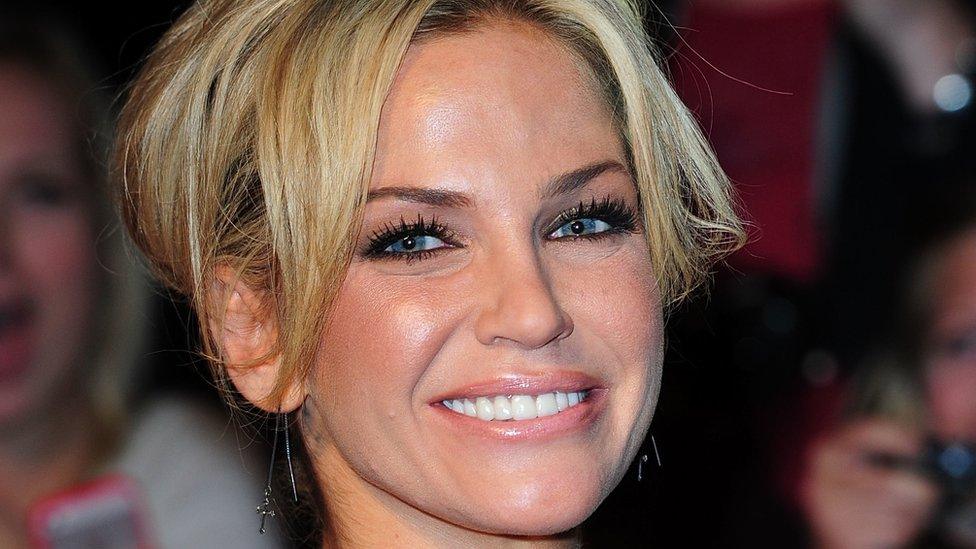Young mum grateful for Sarah Harding cancer study
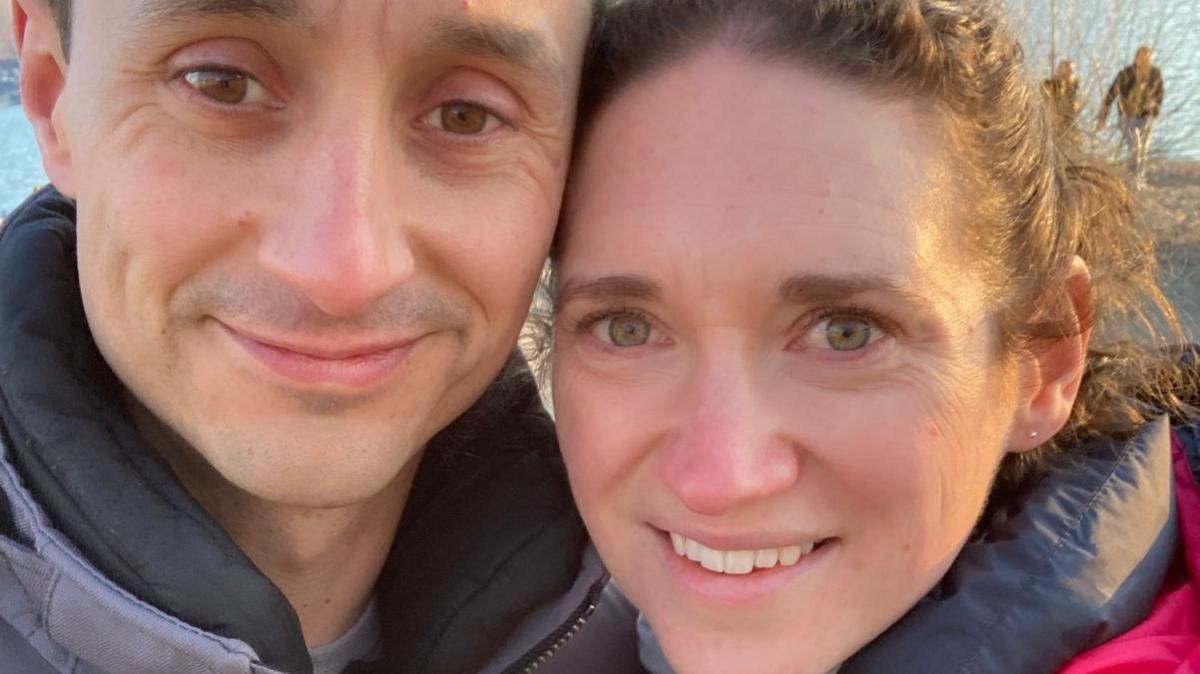
Anna Housley, with her husband Tom, said she felt like "one of the lucky few"
- Published
A young mother has said she was shocked to find out she had an increased risk of developing breast cancer after taking part in a trial inspired by Sarah Harding's dying wish.
The Breast Cancer Risk Assessment in Young Women (BCAN-RAY) study was set up in May 2023 inspired by the Girls Aloud singer's desire to find new ways of spotting the disease earlier.
Harding died in 2021 at the age of 39.
Anna Housley, 38, from Hale, Greater Manchester, said she now felt like "one of the lucky few".
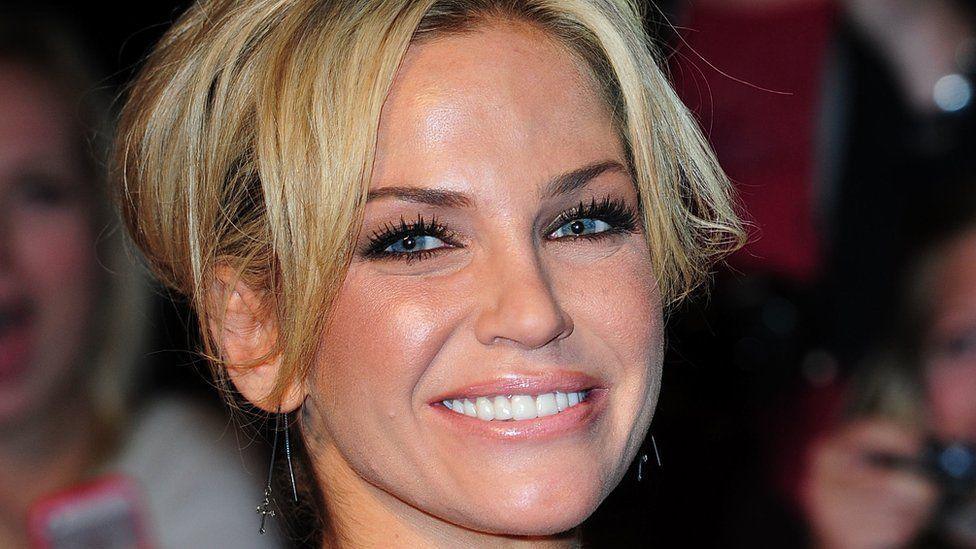
Sarah Harding died from breast cancer in 2021 but wanted to inspire studies into earlier diagnoses
The new information means she is eligible for yearly mammograms, where doctors use X-ray scans to check for signs of breast cancer.
Harding had treatment at The Christie hospital in Manchester and the BCAN-RAY study is led by Manchester University NHS Foundation Trust with funding from the Christie Charity, Sarah Harding Breast Cancer Appeal, and other charities.
Ms Housley said she was "moved" to discover that the popstar's legacy could help prevent her being diagnosed with breast cancer at a late stage.
She said: "It was a bit of a shock because I never thought I was the sort of person they were looking for.
"But when I stepped back I feel like one of the lucky few because while the risk is there, steps can be taken."
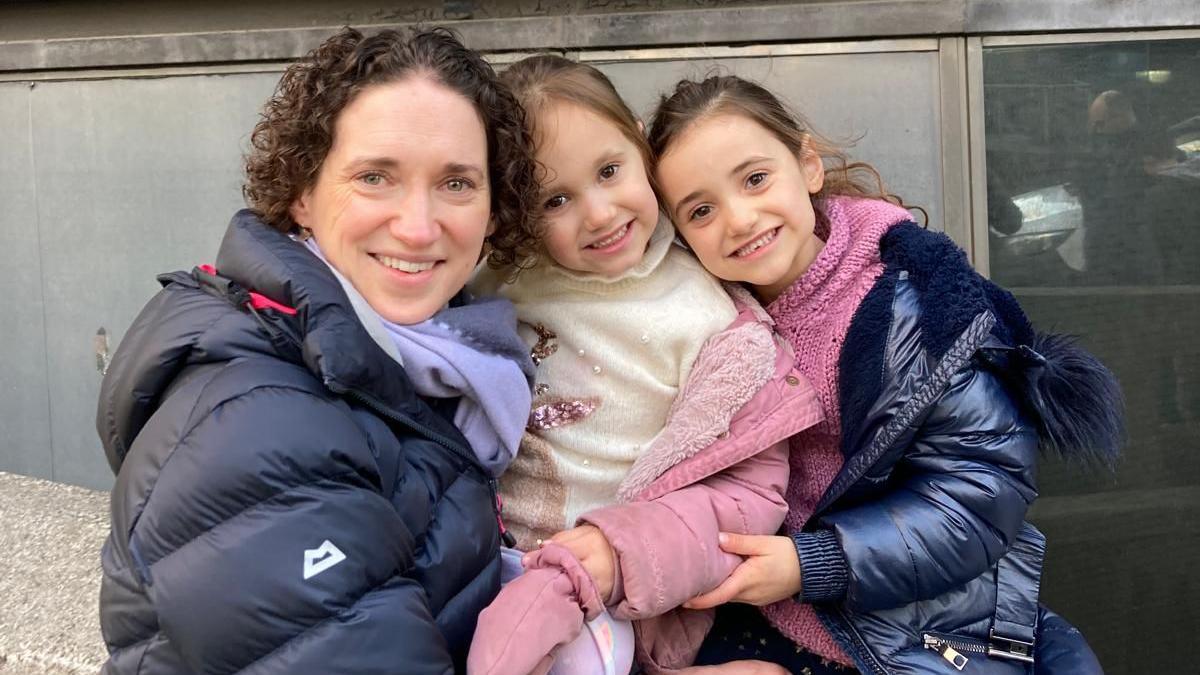
Anna Housley with her two children
Ms Housley had been invited to take part by her GP and the tests showed a combination of factors, including genetic pre-cursors, meant she had a higher risk of developing the disease.
Dr Sacha Howell, who is leading on the study, described the BCAN-RAY as "Sarah's legacy".
He said: “There are too many young women in their 30s, like Sarah, tragically dying from breast cancer.
"She was very keen for more research to be done to find out why they are being diagnosed despite no other family members having been affected by the disease.
"Sarah spoke to me many times about this during her own treatment."
Listen to the best of BBC Radio Manchester on Sounds and follow BBC Manchester on Facebook, external, X, external, and Instagram, external. You can also send story ideas to northwest.newsonline@bbc.co.uk, external
Related topics
- Published5 September 2021
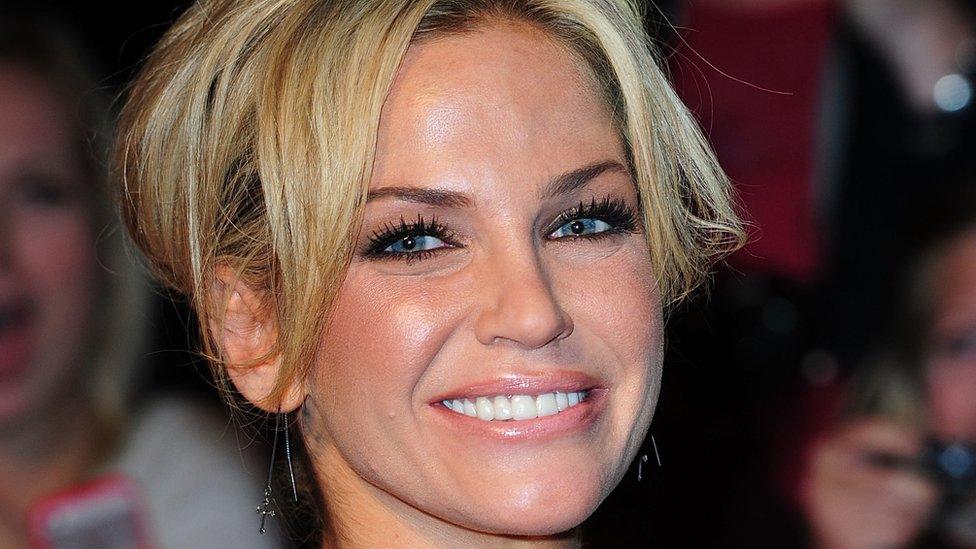
- Published27 June 2023
